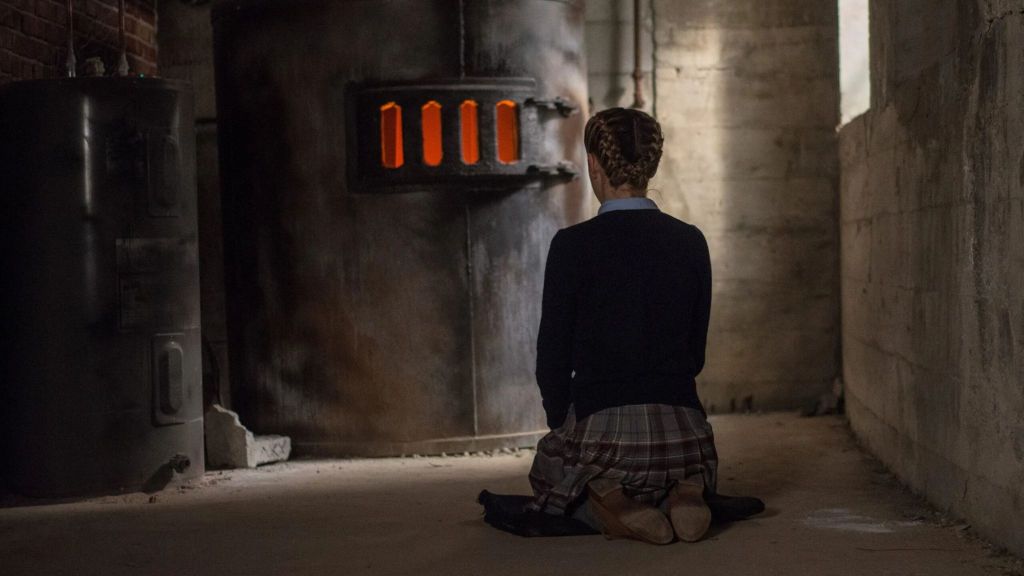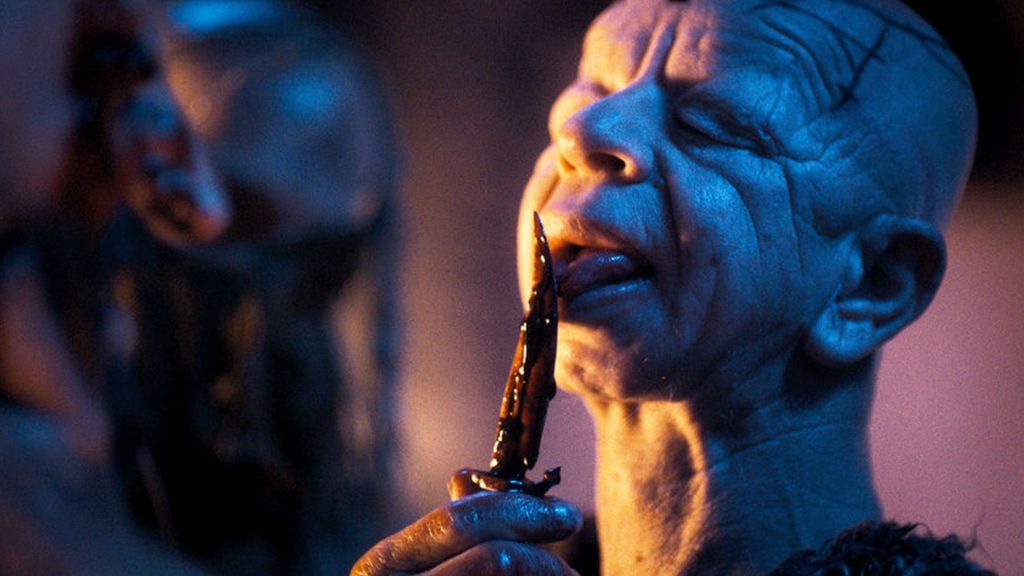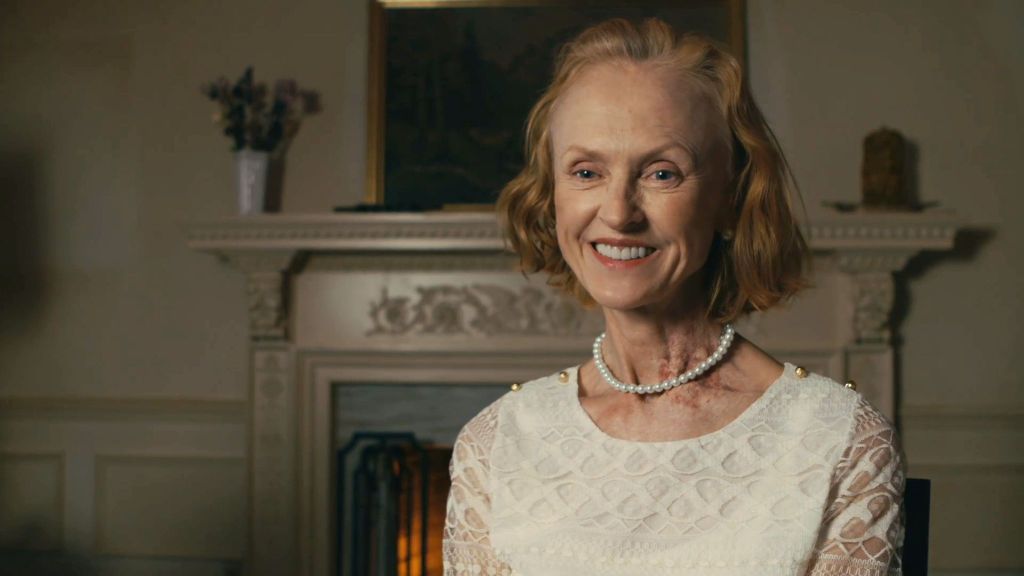Demonic possession has long been one of horror’s most terrifying subgenres, tapping into primal fears of losing control and confronting supernatural evil. While mainstream franchises like The Conjuring and Insidious dominate box office discussions, the demonic horror landscape contains numerous hidden gems that deliver equally chilling experiences without the same level of recognition. These overlooked films often take more experimental approaches to possession narratives, replacing predictable jump scares with psychological depth and an unsettling atmosphere. What makes these forgotten treasures particularly effective is their willingness to explore the darker corners of the possession premise, examining how supernatural forces manipulate human vulnerabilities and trauma.
Videos by ComicBook.com
Here’s our pick of seven underrated demonic horror films representing some of the most innovative and disturbing entries in the possession subgenre.
The Blackcoat’s Daughter

Osgood Perkins’s directorial debut creates a profound sense of isolation and dread within the empty halls of a Catholic boarding school during winter break. The film follows two students left behind during vacation — freshman Kat (Kiernan Shipka) and senior Rose (Lucy Boynton) — while a mysterious third storyline involving a hospital escapee named Joan (Emma Roberts) gradually reveals its connection to the main narrative. What distinguishes The Blackcoat’s Daughter is its methodical pacing and unsettling atmosphere, eschewing traditional jump scares for a slow-burning psychological horror that culminates in shocking violence.
Shipka delivers a haunting performance as the increasingly disturbed Kat, whose deteriorating mental state may or may not be the result of demonic influence. The film’s greatest strength lies in its innovative non-linear structure, which transforms what could have been a straightforward possession tale into a complex meditation on grief and loneliness. With its muted color palette, sparse dialogue, and brilliant sound design featuring subtle demonic whispers, Perkins crafts a uniquely contemplative horror experience that rewards patient viewers with its devastating emotional payoff.
A Dark Song

Liam Gavin’s debut feature takes the familiar concept of summoning supernatural forces and transforms it into a grueling, psychologically complex ritual horror. The film centers on Sophia (Catherine Walker), a grieving mother who hires occultist Joseph Solomon (Steve Oram) to perform a months-long Abramelin ritual in an isolated Welsh house to contact her guardian angel — and through it, her deceased son. Unlike most possession films where demonic elements arrive suddenly, A Dark Song meticulously details every painful step of the occult process, creating a unique tension as the characters endure the physical and psychological torments required by the ceremony.
The confined setting becomes increasingly claustrophobic as strange occurrences multiply, while the contentious relationship between Sophia and Solomon adds another layer of unpredictability to the proceedings. What elevates A Dark Song above typical occult horror is its exploration of grief and forgiveness, culminating in a transcendent finale that subverts expectations while remaining true to the film’s spiritual themes.
[RELATED: 7 Best Horror Movies About Cults, Including Midsommar]
Baskin

Turkish director Can Evrenol’s nightmarish descent into hell transforms a routine police call into a surreal journey through increasingly disturbing layers of reality. The film follows five police officers who respond to a distress call at an abandoned building, only to find themselves trapped in what appears to be a gateway to hell ruled by a grotesque figure known as “The Father” (Mehmet Cerrahoglu). Baskin distinguishes itself through its striking visual composition, transitioning from the naturalistic lighting of its opening scenes to the blood-soaked, crimson-hued hellscape of its final act.
The film’s disorienting narrative structure mimics the confusion of its protagonists, with dream sequences and flashbacks blurring the boundary between reality and nightmare. Cerrahoglu delivers an unforgettable performance as The Father, his naturally distinctive appearance enhanced by minimal makeup to create one of horror’s most uniquely disturbing antagonists. While the extreme violence might alienate some viewers, Evrenol’s artistic vision transforms what could have been exploitative material into a genuinely unnerving exploration of guilt, punishment, and the thin membrane keeping us safe from darker dimensions.
The Taking of Deborah Logan

The Taking of Deborah Logan is a found-footage gem that cleverly disguises its demonic elements within a seemingly straightforward documentary about Alzheimer’s disease. The story follows a student film crew documenting elderly Deborah Logan’s (Jill Larson) cognitive decline, only to discover that something far more sinister than dementia is causing her increasingly bizarre behavior. Director Adam Robitel brilliantly subverts the limitations of the found-footage format by providing a compelling reason for the cameras to keep rolling even as the situation deteriorates, while the documentary premise allows for natural exposition about Deborah’s life.
Larson delivers a remarkable performance as Deborah, transitioning seamlessly between a vulnerable elderly woman and the terrifying vessel for an ancient evil. The film’s genius lies in how it parallels the very real horror of watching a loved one lose themselves to dementia with supernatural possession, creating emotional resonance rarely found in demon-focused horror. Despite its modest budget, the film builds to a genuinely shocking climax featuring practical effects that have become iconic among horror fans.
The Dark and the Wicked

Bryan Bertino’s relentlessly bleak rural nightmare follows siblings Louise (Marin Ireland) and Michael (Michael Abbott Jr.) as they return to their family farm to care for their dying father, only to encounter a malevolent presence that has already driven their mother to suicide. Set against the isolated backdrop of a remote Texas farm, the film creates an atmosphere of hopelessness and inevitability as the demonic entity methodically destroys the family. The Dark and the Wicked refuses to offer conventional horror comforts — no rules are established for fighting the entity, no expert characters arrive to explain the situation, and redemptive arcs are cruelly subverted.
Furthermore, Ireland and Abbott Jr. deliver powerfully restrained performances as siblings forced to witness their family’s destruction while being psychologically tormented themselves. The film’s greatest strength lies in its exploration of how grief and family obligation can leave us vulnerable to malevolent influences, creating a meditation on familial guilt that feels as emotionally devastating as it is supernaturally terrifying.
[RELATED: 7 Best Single-Setting Horror Movies]
Fallen

Despite its innovative approach to demonic possession of Fallen, this atmospheric 1998 thriller starring Denzel Washington has largely faded from public memory. The film follows Philadelphia detective John Hobbes (Washington) as he investigates murders that appear to be copycat killings of a recently executed serial killer, only to discover that a fallen angel named Azazel can possess humans through touch and is targeting him personally. Unlike most possession narratives focusing on a single victim, Fallen presents a uniquely mobile antagonist who can transfer between hosts within moments, creating paranoia as any character could be possessed.
Director Gregory Hoblit builds tension through subtle visual cues and performance shifts as different actors portray the same demonic entity, while Washington anchors the film with a compelling performance as an increasingly isolated protagonist. Though initially overlooked upon release, the film’s exploration of institutional corruption, theological concepts, and psychological manipulation makes it a sophisticated demonic thriller that deserves rediscovery by modern horror fans.
Starry Eyes

This savage satire of Hollywood ambition reframes the classic Faustian bargain through a gruesome body horror lens. Starry Eyes follows struggling actress Sarah Walker (Alexandra Essoe) as she lands the opportunity of a lifetime with the mysterious production company Astraeus Pictures, only to discover that their casting process involves ritualistic transformation and sacrifice. Essoe delivers a fearlessly committed performance, portraying Sarah’s desperate ambition and her horrifying transformation with convincing intensity.
The film’s brutal third act doesn’t shy away from graphic violence, yet these moments feel earned after the meticulous character development of earlier scenes. Starry Eyes’ incisive commentary on the entertainment industry’s exploitative nature suggests that the process of becoming a “star” requires sacrificing not just dignity but humanity itself. By framing demonic possession as a deliberate choice made in pursuit of success rather than an unwanted invasion, the film offers a uniquely disturbing perspective on how ambition can corrupt the soul.
What other underrated demonic horror movie would you add to this list? Let us know in the comments!








